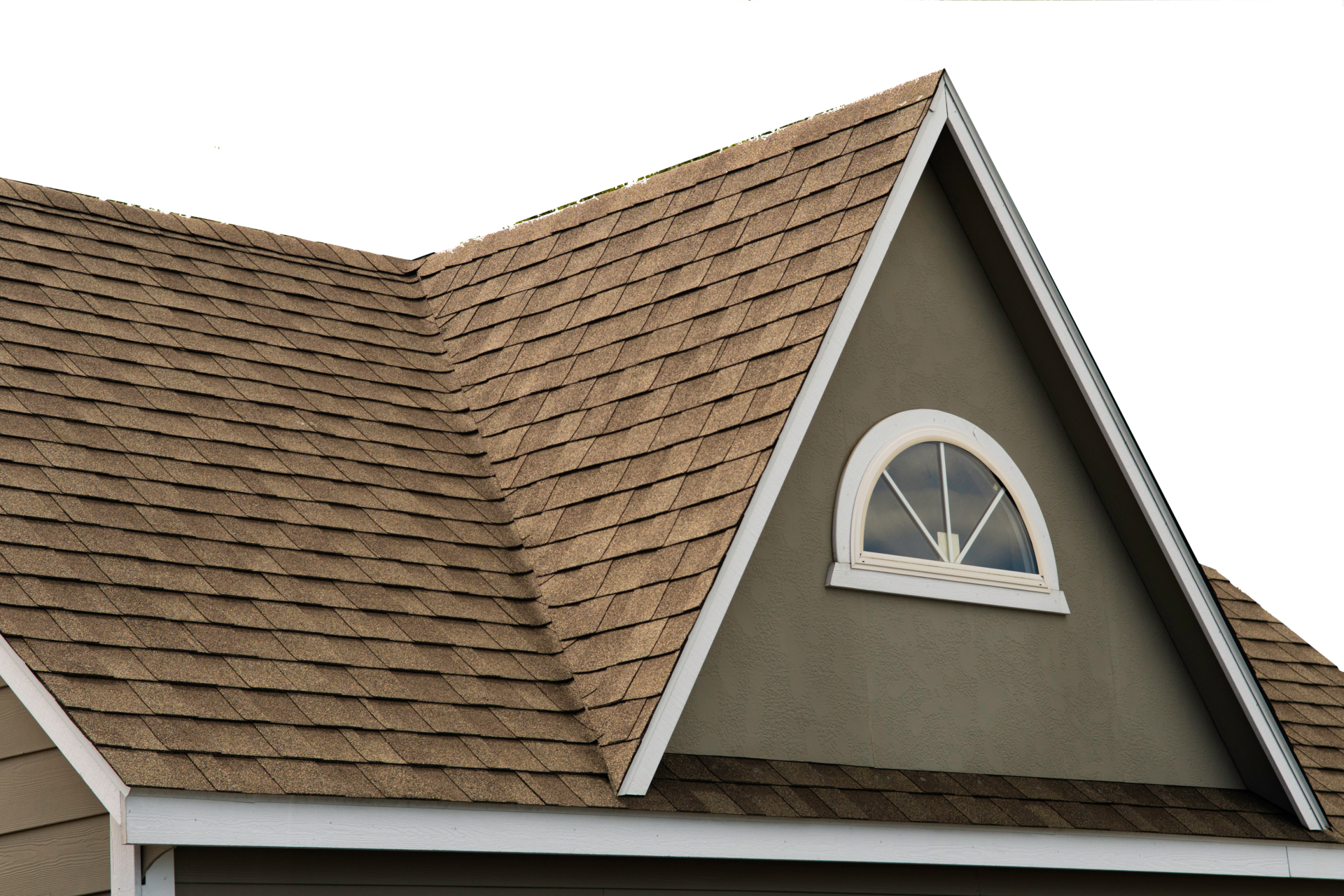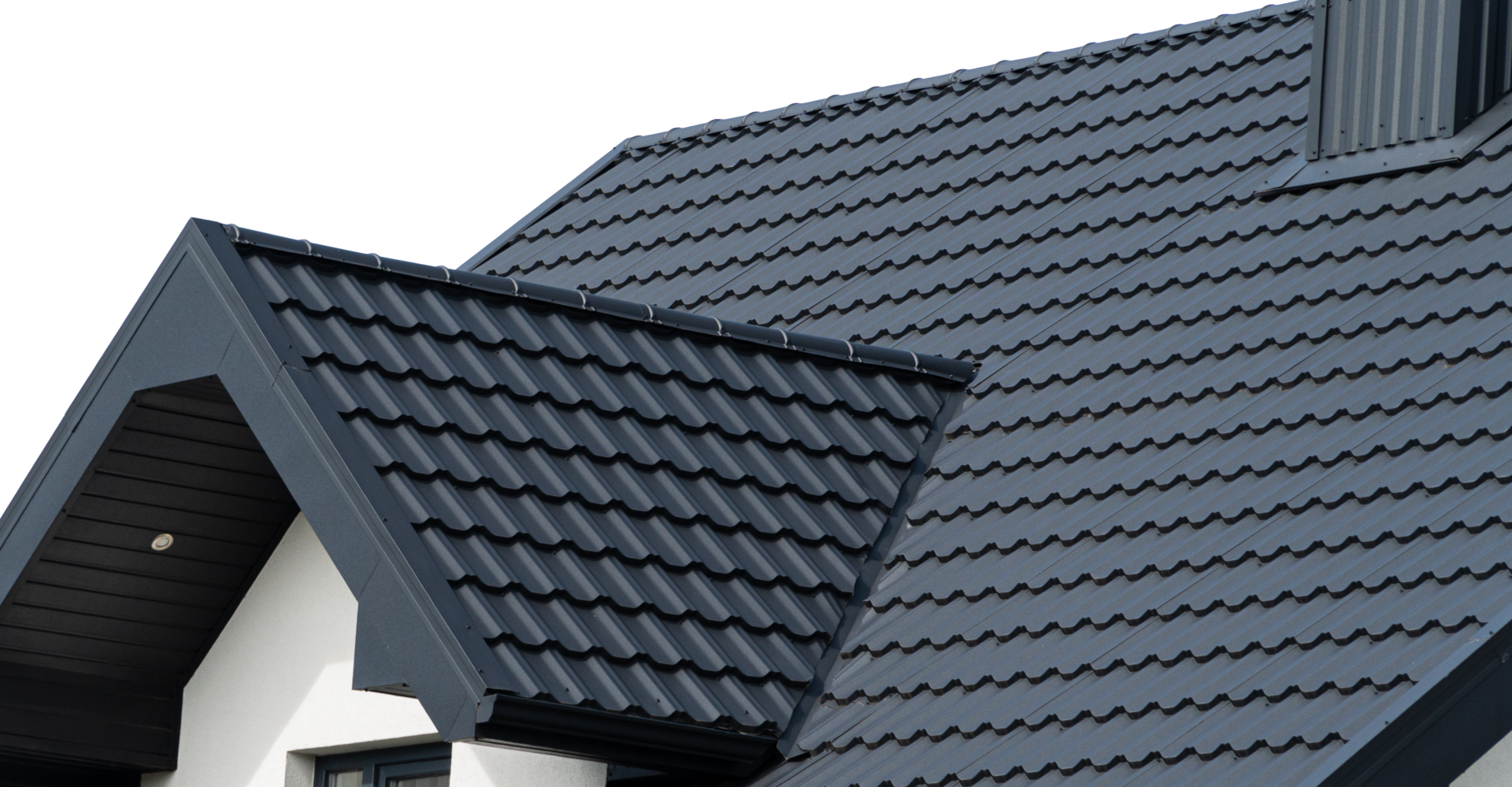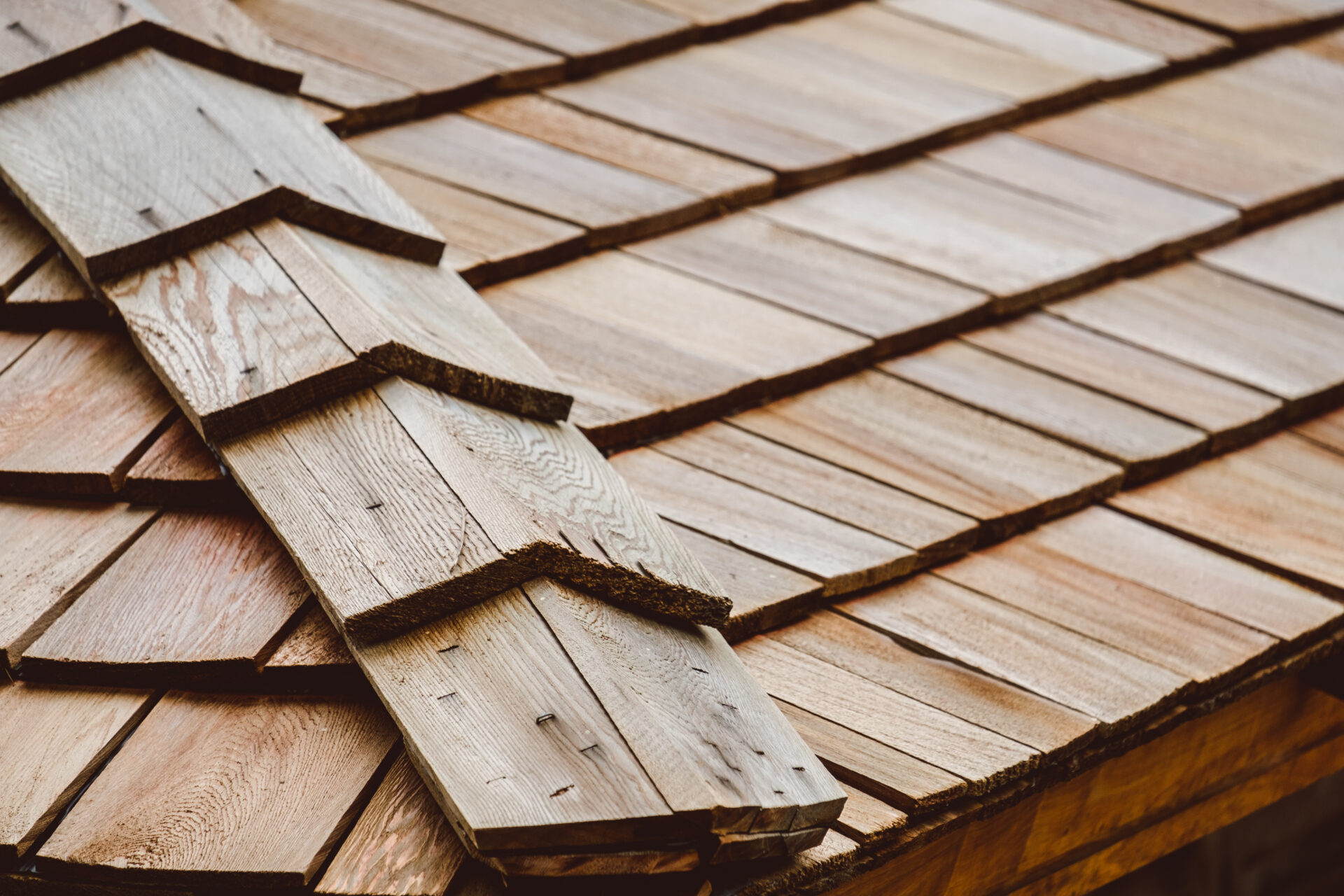Most hailstorms don’t produce hailstones big enough to damage your roof, but those that do can lead to expensive roof repairs. Hail can put small divots in your roof or crack your shingles, potentially causing water damage inside your home.
It’s best to fix your roof before any hail damage leads to bigger problems. The average roof repair cost due to hail is $940, or $4–$7 per square foot.* This includes replacing shingles, preventing water leaks, and fixing other features. Extensive repairs to large roof sections could cost $25,000 or more, especially if it warrants full roof replacement and fixing interior water damage.
Many factors influence the price of roof repairs, such as the project’s size and scope, your specific roofing material, and your insurance coverage. We’ve detailed these factors and other essential information below.
*Article cost data averaged from Angi and Home Advisor.
Find Expert Help
- Use our expert research to learn more about your project
- Enter your ZIP code and tell us about your home
- Match with local experts who can meet your needs
Get Your Roofing Project Quote Today
Compare quotes from local pros
What Are Major Hail Damage Roof Repair Cost Factors?
Several variables affect the cost of repairing hail damage.
- Materials: The type of roof you have greatly impacts repair costs. Asphalt shingles cost less to replace than wood or metal materials. You’ll also need to incur the cost of repairing your gutters and roof flashing if it’s damaged.
- Project scope: Larger, more complex repairs cost more. The price will also increase if the damage is in a harder-to-reach area.
- Labor: Roofing companies typically charge by the hour for every worker. The longer the project takes, the more you’ll pay for labor.
Materials
Hail damage roof repair may only require replacing a few shingles. Below are the average costs for popular types of roofing shingles.
Asphalt shingles
($1.20–$4 per square foot)
Though asphalt can withstand high winds, hailstorms can cause shingles to lift up, tear, or bruise, exposing your roof to wind and water.
Hail can also knock the granules off the shingles, exposing them to ultraviolet (UV) rays. UV light can break down the asphalt, causing leaks.

Clay or concrete tiles
($3–$5 per square foot)
Clay and concrete tile roofs are known for their durability and weather protection, but they’re still susceptible to damage from large hailstones. Chips or cracks can form in these tiles when hit by hail.

A roofing contractor can repair minor damage with mortar, but heavy damage that breaks the tiles into multiple pieces calls for replacement. Terracotta is the most expensive to replace, and concrete is the least expensive.
Metal shingles
($1–$5 per square foot)
Metal is highly durable, but severe hail can damage its flashing and joints. If you don’t repair the roof quickly, leaks can occur within days or weeks.
Denting is also common on metal roofs, but it doesn’t always require fixing.

Metal shingles, especially standing seam roofs, are difficult to repair. It involves cutting out sections and replacing them with patches. Replacing entire panels is typically a better option, but the cost of metal roof panel installation is not cheap.
Wood shingles
($6–$7 per square foot)
Wood shake roofs can dent, crack, or split from heavy hail.
Repairs may not be necessary if punctures don’t go through the wood and/or there are no signs of discoloration from unoxidized wood underneath the surface.

Cost by Materials
Repairing roofing materials costs $1–$7 per square foot, depending on the material. Here’s a price breakdown.
| Roof Material | Cost per Square Foot |
|---|---|
| Asphalt | $1.20–$4 |
| Metal | $1–$5 |
| Clay or concrete | $3–$5 |
| Wood | $6–$7 |
Project Scope
Your project’s scope is determined by many factors, namely the following:
- Size of the damaged area
- Required repairs
- Roof style and pitch
- Accessibility of area
Homes with multiple levels or those located in wooded or urban areas may require special equipment to reach damaged areas, so repair costs are generally higher. Due to drainage issues, flat roofs are more vulnerable to water damage after a hailstorm. Thus, flat roofs are typically more expensive to fix than pitched roofs.
Heavy hail damage may require a full roof replacement. A new roof costs $10,000 on average, depending on the roof size, materials, location, and more.
Labor
Labor costs $45–$75 per hour, per worker. Even minor roof repairs often require more than one worker. The longer and more difficult the repairs, the more you’ll pay for labor. Most experts include labor and materials in their initial quote.
What Are Additional Hail Damage Roof Repair Cost Factors?
Here are some less impactful but still important hail damage roof repair cost factors to consider.
Insurance Coverage
If you have a homeowners insurance policy, contact your provider first. Hail damage is typically covered, but you’ll need to pay your deductible before insurance kicks in. For example, if you have an insured loss worth $1,000 and your deductible is $200, you’ll receive a claims check for $800. Your deductible is often a percentage of your home’s dwelling coverage (typically 1%–5%).
Most companies have a time limit for filing an insurance claim—usually six months to two years after the storm’s date. Coverage for older roofs may only partially cover repair costs. We recommend calling your provider for more information.
Professional Roof Inspection
Insurance companies require a professional roof inspection after you make a claim. Even if you don’t go through insurance, you should get a roof inspection to find out the extent of your roof damage and what needs repairing. The inspector will climb onto the roof and mark damaged areas or use an aerial drone. A professional roof inspection costs around $220, though it may be more for larger roofs.
Associated Property Damage
Hail can damage your property far beyond the roof. Here are examples of additional damages and associated repair costs.
- Water damage: Severe roof damage can lead to water leaks. Water leaks can impact your attic, ceiling, and your home’s overall structural integrity. It’s also a fire hazard if there’s electrical equipment in the area.
- Mold remediation: Mold and mildew from a water leak can lead to serious health issues. The most common area to find mold from a roof leak is in the attic’s insulation and sheetrock.
- Gutter repair: Gutters direct water away from your home. Dented or bent gutters can cause water to leak into your home’s foundation.
- Flashing repair: Flashing protects vulnerable areas of your roof. It directs water away from seams and joints where it could otherwise seep through.
| Type of Repairs | Average Cost |
|---|---|
| Water damage | $400–$1,700 |
| Mold Remediation | $1,127–$3,441 |
| Gutters | $193–$620 |
| Flashing | $150–$1,000 |
Should You DIY vs. Professional Hail Damage Roof Repair?
Patching a few areas of your roof may be feasible on your own, but we don’t recommend do-it-yourself (DIY) roof repairs from hail damage. Working on your roof is dangerous, and small dents or punctures from hailstones aren’t easily noticeable to most homeowners.
DIY Hail Damage Roof Repair
Roofs have uneven surfaces, making them dangerous to work on even for single-story homes. Shingles and tiles can become loose after hail damage, making it easy to slip and fall. You also won’t benefit from a roof warranty if you do the repair yourself, and your homeowners insurance company won’t reimburse you.
You’ll need the right tools and knowledge if you’re still considering the DIY route. Below are some important considerations.
- How much will equipment and tools cost? You may save money on labor, but you’ll need to buy any necessary equipment. You’ll need a ladder, a hammer, roofing nails, roofing cement, and more. If the damage is in a hard-to-reach area, you may need scaffolding or a platform.
- Can you bundle your repair with a larger project? If your roof is old, it might be more economical to do a full roof replacement rather than complete a DIY repair.
- How will you transport the materials? Will the materials fit in your vehicle when you pick them up? If not, you’ll have to factor in a truck rental. A small truck costs around $20–$30 per day, and a midsize or large truck costs $40–$100 per day.
Professional Hail Damage Roof Repair
A professional contractor will assess the hail damage and outline the required repairs and materials. They will perform shingle roof repair by removing the affected shingles and installing new ones, matching them to your existing roof as closely as possible. They’ll use roofing cement or sealant to fill cracks, punctures, or gaps caused by the hail to ensure a watertight seal and prevent future leaks. They’ll also check flashing and gutters and make repairs if necessary.
Professionals have the following advantages:
- Access to specialized tools and materials
- Knowledge of the required building permits
- The ability to offer warranties on their work
- Tools, knowledge, and staff to get the job done efficiently and correctly
- Training and safety equipment for working on steep roofs
How To Hire a Professional Roofer
Here are some steps to take when deciding between roofing companies:
- Ask for references of previous work.
- Ask the contractor if everyone performing the work is licensed, bonded, and insured. You can also verify their licenses online through your state’s contractor licensing agency website.
- Check online customer reviews on sites such as Yelp, Google Reviews, and the Better Business Bureau (BBB).
- Compare multiple quotes. Be wary of any that are much higher or much lower than average.
- Get any cost estimates, guarantees, and warranties in writing.
- If you’re going through your homeowners insurance, make sure the contractor is approved by your company.
- Inquire about discounts or rebates.
How To Save on Hail Damage Roof Repair
Even if you hire a professional roofer, you can still save money with careful planning.
- Get estimates from at least three different roof contractors to compare pricing. Negotiate if possible.
- Go through your homeowners insurance. Hail damage is covered in most cases, though you’ll still pay the deductible.
- Get repairs done as soon as possible. Waiting could lead to additional damage and increase the total project cost.
- If possible, bundle the repair with another large roofing project, such as a solar panel installation or roof replacement.
Our Conclusion
If your roof has sustained hail damage, we recommend filing a claim through your homeowners insurance company and choosing an approved contractor to fix it. Most insurance policies cover hail damage; the only out-of-pocket expense may be your deductible. Repairing a few shingles may seem simple, but without previous roofing experience, this isn’t an easy project to complete.
If you don’t go through insurance, you should still hire a roof inspector to assess the damage fully. You can then research local contractors and follow the steps we outlined above to ensure a proper repair job.
Get Your Roofing Project Quote Today
Compare quotes from local pros
FAQ About Hail Damage Roof Repair
How big of hail causes roof damage?
How big hail needs to be to cause roof damage depends on your roofing material. According to the International Association of Certified Home Inspectors (NACHI), three-tab shingles are the most fragile and can be damaged by hail 1 inch in diameter. Heavy wood shakes and thick fiberglass may get damaged when hail reaches 1.25 inches, or about golf ball size. Concrete tiles may get damaged when hail reaches 2 inches in diameter.
Can hail damage cause roof leaks?
Yes, hail damage can cause roof leaks depending on the hailstorm’s severity. Damage to the roof shingles, flashing, and other features can compromise your roof’s structural integrity and expose the underlayment. Without protection, water can get through the underlayment and into your home.
What is the best roof against hail damage?
According to NACHI, metal roofing is best in hail-prone areas. Although metal is very durable, dings and dents are common. You could eventually end up with a pock-marked roof. Rubber shingles are another option. The rubber absorbs the hail’s impact and prevents significant damage.



